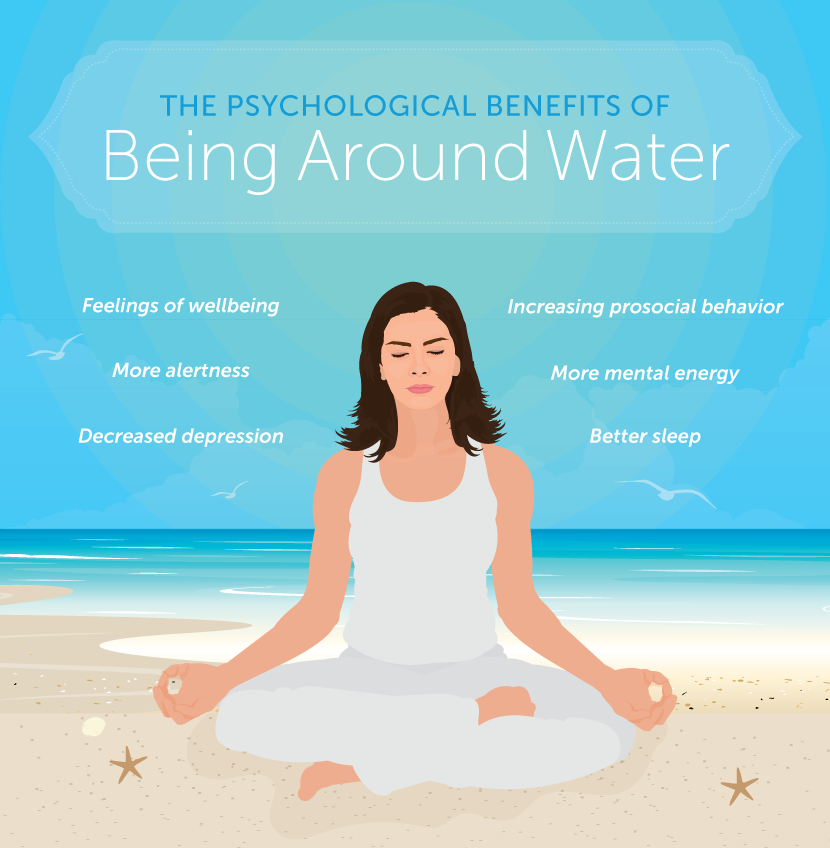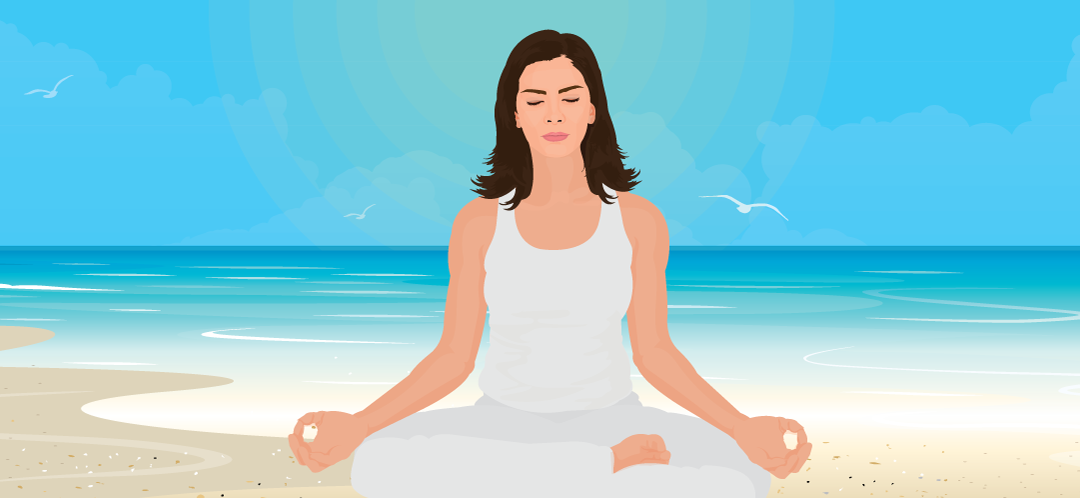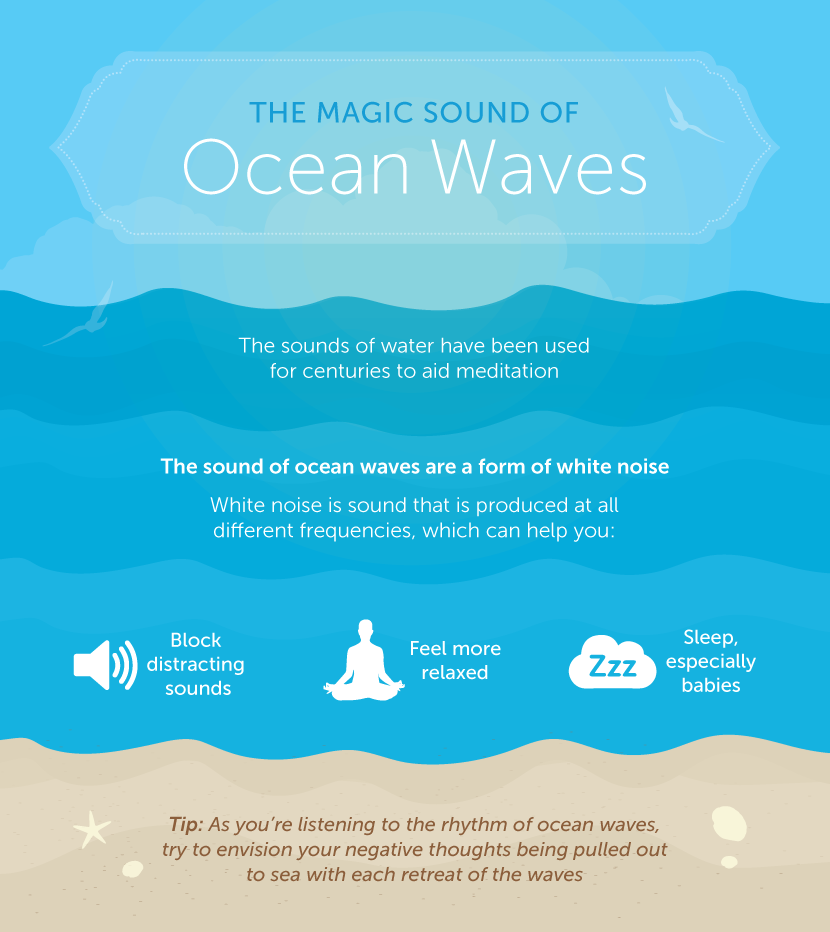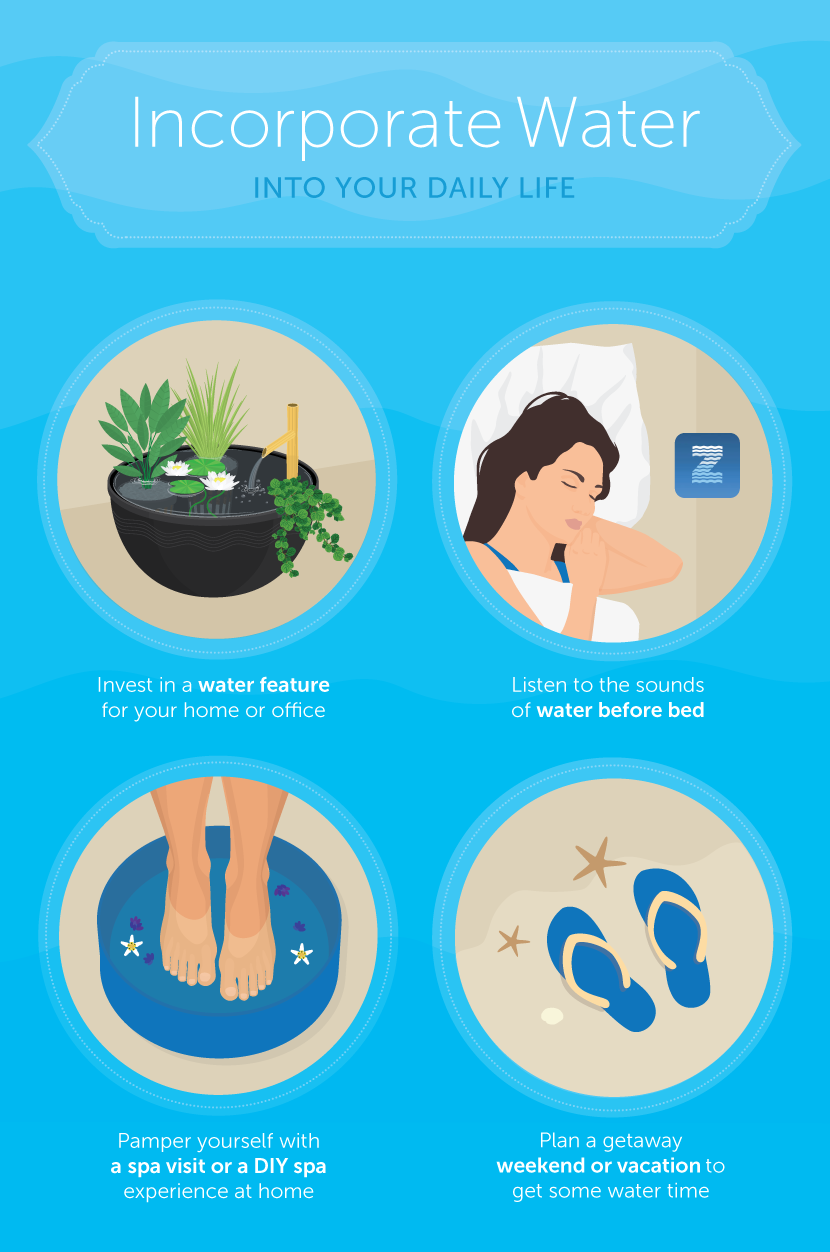Water glorious water!
I often take water for granted. In first-world countries, it’s as easy as turning a tap, and I can have as much of it as I like until I decide to turn off the tap. Because water is so commonplace, it’s easy to forget how important it is for life. Water makes up 71 percent of the Earth’s surface and 75 percent of the human brain. That’s a lot of water!

Our humble H2O is a powerful force for our health and well-being in myriad ways.
The Historical Role of Water in Our Lives
If we want to really start at the beginning, let’s start here: We evolved from sea creatures. Our great, great (great, great …) ancestors once slithered from the water for the last time, growing land-appropriate appendages. But we continued to stick by water. Some scientists think that our aquatic diet, because it was so rich in Omega-3 fatty acids, contributed to the growth of our brains and the thriving progression of our evolution.
Fast-forward a few years, and we know that for growing societies, living by the water makes sense. Fishing has always formed a core part of our sustenance as human beings, and as societies evolved, we relied on waterways for transportation and trade.
Being by the water today is not only practical but desirable, as real estate selling points attest: Waterfront property! Ocean views! And for many people who do not live near the water, a vacation is synonymous with getting to the beach.
The Psychological Benefits of Water
In addition to the physiological benefits of water (like reducing muscle tension and joint stress, staying hydrated, and keeping skin moisturized, hair shiny, etc.), there are interesting psychological benefits.
According to scientific studies, being by the sea has a positive impact on mental health. Minerals in sea air reduce stress. Negative ions increase the flow of oxygen to the brain (they’re also present around waterfalls), which improves alertness and mental energy. And salt in the water preserves tryptamine, serotonin, and melatonin, which aid in diminishing depression, giving us a better night’s sleep, and boosting feelings of well-being.
Even the sound of water has positive effects on our mental health. Water sounds have long been used in meditation to create a soothing atmosphere for our minds. Science suggests that the rhythm of ocean waves and tides coming in and out can affect the rhythm of the neuronal “waves” in our brain, encouraging a more peaceful pace of thought.
Some scientists refer to the sounds of water as “white noise,” in which we can hear any number of things and we are able to let go of our thoughts and let the noise wash over us. In listening to these sounds during meditation, we learn how to be present in the moment and directly experience things as they are instead of getting lost in rumination.
One of the psychological effects we’re most aware of when we’re by the sea, lakes, or waterfalls is a feeling of awe. There’s just something about the beauty and vastness of a natural scene that has a profound impact on the way we feel. Science has even found that such feelings can lead to prosocial behavior like altruism, loving kindness, and magnanimity.
Some studies have even found that awe leads to greater life satisfaction. It fosters a sense that time is plentiful, and people donate more of theirs to charity while valuing experiences over possessions.
How to Incorporate Water Into Your Daily Life
It’s not always possible to get out to the ocean when we need a bit of a mental and health boost. But there are several ways we can work the powers of water into our daily lives, no matter how busy we are.
1. Invest in a water feature for your home or office.
Whether it’s a small running fountain, water “wall,” or fish tank, a water feature can be a rejuvenating addition to an otherwise hectic space. The sound can help to block out aggravating noises like traffic, and it’s a great visual cue that reminds you of being outdoors by the water.
2. Listen to the sounds of water before bed.
Find a water-sounds playlist online, or buy a CD with the natural sounds of water. (This could be the ocean, waterfall, rainforest, etc.) Playing these sounds before bed will help you relax and give you a better sleep.
3. Pamper yourself with a spa visit, or create a DIY spa experience at home.
Warm water and steam can do wonderful things for the body and mind. That’s why hot and cold pools, saunas, and steam rooms are so common at spas. You can easily create the same effects at home with a warm tub soak or hot shower. Running water in your home creates the same negative ions as the ocean does, boosting your mental energy.
4. Plan a getaway weekend or longer vacation for some water time.
Whether it’s booking a beach vacation or planning a weekend road trip or hike to a waterfall, it’s worth spending some time and money to get a real dose of nature once in a while. You’ll invite those feelings of awe that can improve our well-being and make us more prosocial people.
It’s amazing the extent to which water, something we overlook completely in our day-to-day lives, can have such a positive effect on our health and well-being when we pay it the attention it deserves.









